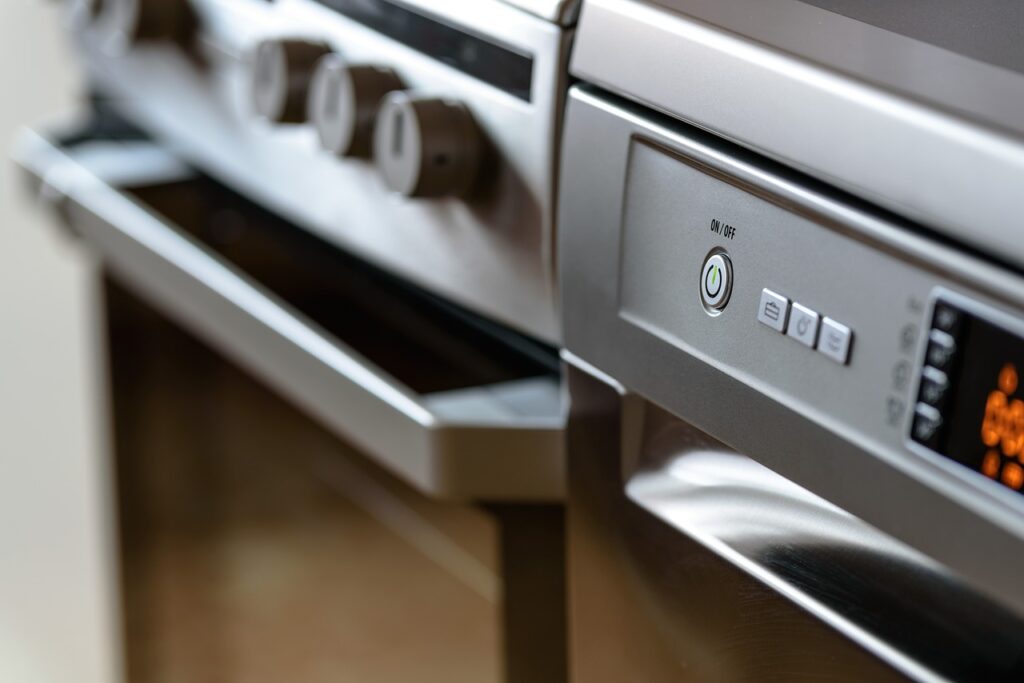In our ever-evolving world, technology is in every aspect of our lives, especially our homes. Enter the era of smart appliances—refrigerators that order groceries, ovens that preheat remotely, and washing machines that send notifications when the laundry is done. These marvels promise convenience, efficiency, and a touch of futuristic magic. But here’s the twist: they’re failing faster than their older, less intelligent counterparts.
The Rise of Smart Appliances
Our large appliances are now smarter and able to do more than ever before. Manufacturers market features like Wi-Fi connectivity, voice control, and predictive algorithms to help you keep up with daily tasks. Imagine adjusting your home thermostat while away on your vacation trip or brewing coffee from bed with a voice command. It’s the stuff of our parent’s sci-fi dreams but today’s reality.

Credit: Photo Mix
The Dark Side of Intelligence
But there’s a catch. As appliances get smarter, they become more complex. And complexity often leads to vulnerability. Here’s why modern smart appliances are stumbling:
- Software Glitches:
- Smart appliances rely on software. When that software glitches, your fridge might forget it’s cooling programming or your dishwasher might simply decide not to complete the wash cycle. These hiccups can disrupt daily life.
2. Shorter Lifespans:
- Remember Grandma’s sturdy blue refrigerator that lasted decades? That’s not the case with your new, sleek Smart fridge with tablet display. The average lifespan is shrinking. Why? Because software updates can’t fix everything, and new components just wear out faster.
3. Dependency on Connectivity:
- Smart appliances thrive on connectivity. Lose Wi-Fi, and suddenly your oven refuses to bake cookies. Older appliances only need power and/or fuel—and they just bake.
4. Planned Obsolescence:
- Manufacturers want you to upgrade. Smart appliances are designed with planned obsolescence in mind- which means you CAN’T keep it forever. (And even if you do, your replacement parts won’t necessarily be available).
A recent Wall Street Journal report delved into this paradox. It revealed that while smart appliances dazzle us with their features, they’re also ticking time bombs. Their failure rates are higher, and repairs are costlier.
The Bottom Line
So, what’s a homeowner to do? Here are some tips:
- Research Reliability: Before buying, check reliability ratings. Don’t be swayed by touchscreens; focus on longevity.
- Embrace Simplicity: Sometimes, a good old non-smart appliance gets the job done without fuss. It won’t order groceries, but it won’t crash either.
- Invest Wisely: If you do go smart, invest in quality brands. They might cost more upfront, but, hopefully, they’ll save you headaches (and repair bills) down the line.
- Think 5 Years Down the Road: If you are planning to move, your Smart appliance may be an appeal to a new homeowner, but does the same appliance make sense for a rental? Be sure to consider a few years down the road if you don’t intend to keep or maintain the appliance for yourself.
In the end, smart appliances are one of many new conveniences that can dazzle and make life more fun, and – lets face it- convenient. But think about the lifespan you want/need for that specific appliance, do your due diligence in selecting, and be ready for an upgrade sooner than later.
Sources:
- WBUR, 2. WUSF, 3. NPR Illinois, 4. KLCC, 5. ideastream
Dwelling Network can help provide oversight of your home renovation- including recommending appliances that make sense for your intended future use. Check out some of our renovations here.



1 thought on “The Paradox of Smart Appliances: Why They Fail Faster ”
Thanks for this effort, I appreciate your efforts for sharing this article. Very Useful